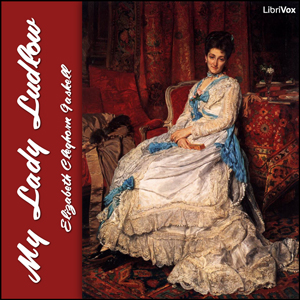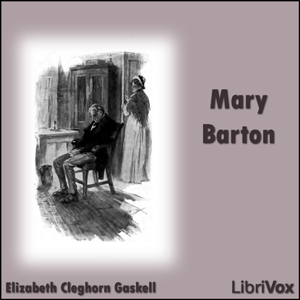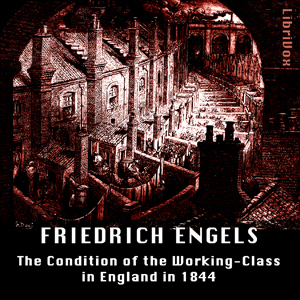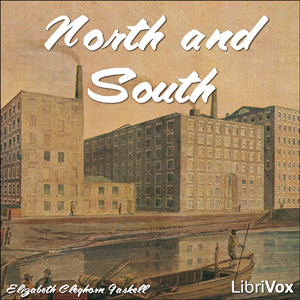Mary Barton: A Tale of Manchester Life (Version 2) - Elizabeth Cleghorn Gaskell
Elizabeth Cleghorn Gaskell
Audiobook info
Comments (0)
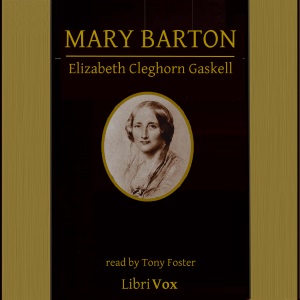
listen
Audiobook genre Culture & Heritage Fiction / Published 1800 -1900 listen online
Author: Elizabeth Cleghorn Gaskell
Added: 2-09-2022, 07:00
Views: 191
"Mary Barton: A Tale of Manchester Life" was Mrs Gaskell's first full-length novel. It was published anonymously in that tumultuous year of political change, 1848 - only a few months after the Communist Manifesto co-authored by her fellow Manchester-resident, Friedrich Engels. Engels's experience as agent in his father's cotton-spinning factory motivated him to write "The Condition of the Working Class in England", a classic account of the sufferings of the poor under the factory-system.
Elizabeth Gaskell's own personal contact with the plight of the poor cotton workers of Lancashire also compelled her to a compassionate examination of their lives; but as a middle-class woman, married to a Unitarian minister, her approach to her subject took on a more emotionally complex significance; influenced by religious faith but also by more personal considerations.
In the brief preface to the novel, Mrs Gaskell hints at her initial impulse. The loss of a beloved child in infancy led her to seek a therapeutic outlet, but one which left her uncertain of her capacity to contextualize her public, writerly response to the tragedies occurring in the surrounding society of Manchester's poorest classes: "I know nothing of Political Economy, or the theories of trade..." She was, however, determined to portray, in novelistic form, the intimate connection between the private experience of her characters and the social forces of her time. The success of the novel led her to proclaim her authorship and move on to further works of fiction, which have secured her in our times a mounting reputation as one of the leading novelists of the mid-Victorian period.
Certainly the novel features numerous death-scenes, all conveyed with a depth of sympathy that contrasts with the queasy iambics with which Dickens orchestrated the notorious demise of Little Nell. Mrs Gaskell was not, like Dickens, a London-based novelist observing the sufferings of the provincial poor with a journalistic detachment - as evidenced in his own admirable, Lancashire-based novel "Hard Times". Gaskell lived among the people whose attenuated lives she chronicled - and however hesitantly, as a début novelist, she rendered their experience in literary terms, her writing presents us with a true insight into the sufferings of individuals at a point in history when the mass of human beings fell casualty to the forms of economic progress following upon the Industrial Revolution. Most impressively she called into question the political and social cost of creating a resentful proletariat despairing of survival in (to quote Karl Marx) a "heartless world".
Our reader Tony Foster is a resident of Manchester and a near-neighbour of Mrs Gaskell (allowing for their separation in time). His superb narration renders the native speech of her characters with an authenticity which ideally conveys the spirit of this book. A truly moving experience awaits everyone who gives ear to this 'Tale of Manchester Life'. (Summary by Martin Geeson)
Elizabeth Gaskell's own personal contact with the plight of the poor cotton workers of Lancashire also compelled her to a compassionate examination of their lives; but as a middle-class woman, married to a Unitarian minister, her approach to her subject took on a more emotionally complex significance; influenced by religious faith but also by more personal considerations.
In the brief preface to the novel, Mrs Gaskell hints at her initial impulse. The loss of a beloved child in infancy led her to seek a therapeutic outlet, but one which left her uncertain of her capacity to contextualize her public, writerly response to the tragedies occurring in the surrounding society of Manchester's poorest classes: "I know nothing of Political Economy, or the theories of trade..." She was, however, determined to portray, in novelistic form, the intimate connection between the private experience of her characters and the social forces of her time. The success of the novel led her to proclaim her authorship and move on to further works of fiction, which have secured her in our times a mounting reputation as one of the leading novelists of the mid-Victorian period.
Certainly the novel features numerous death-scenes, all conveyed with a depth of sympathy that contrasts with the queasy iambics with which Dickens orchestrated the notorious demise of Little Nell. Mrs Gaskell was not, like Dickens, a London-based novelist observing the sufferings of the provincial poor with a journalistic detachment - as evidenced in his own admirable, Lancashire-based novel "Hard Times". Gaskell lived among the people whose attenuated lives she chronicled - and however hesitantly, as a début novelist, she rendered their experience in literary terms, her writing presents us with a true insight into the sufferings of individuals at a point in history when the mass of human beings fell casualty to the forms of economic progress following upon the Industrial Revolution. Most impressively she called into question the political and social cost of creating a resentful proletariat despairing of survival in (to quote Karl Marx) a "heartless world".
Our reader Tony Foster is a resident of Manchester and a near-neighbour of Mrs Gaskell (allowing for their separation in time). His superb narration renders the native speech of her characters with an authenticity which ideally conveys the spirit of this book. A truly moving experience awaits everyone who gives ear to this 'Tale of Manchester Life'. (Summary by Martin Geeson)
Listen 🔊 mp3 (mp3) audiobook "Mary Barton: A Tale of Manchester Life (Version 2) - Elizabeth Cleghorn Gaskell" in good quality in English completely free without registration on the best site booksaudio-online.com/en/
Listen to similar audiobooks:

